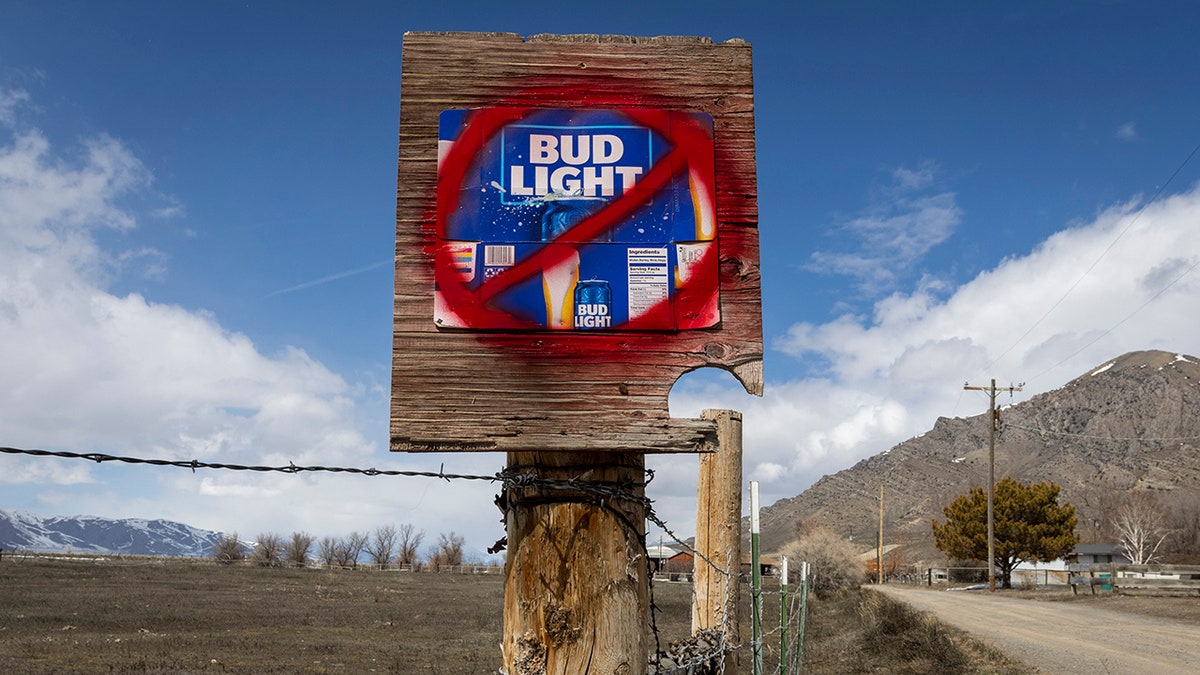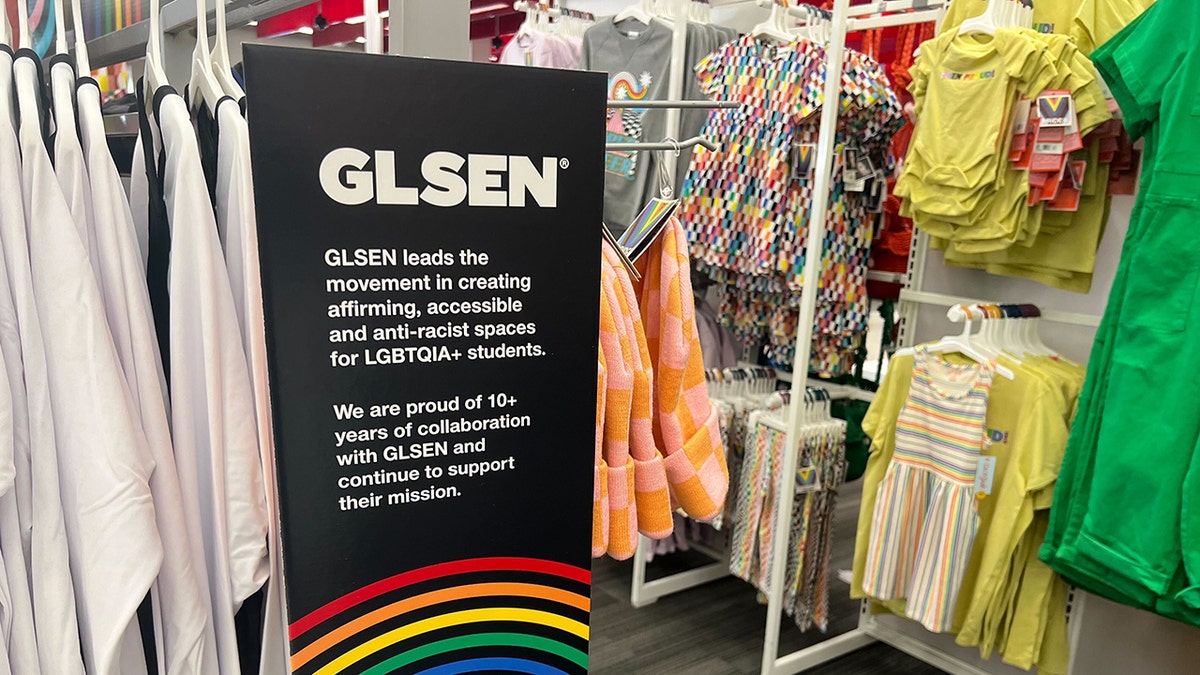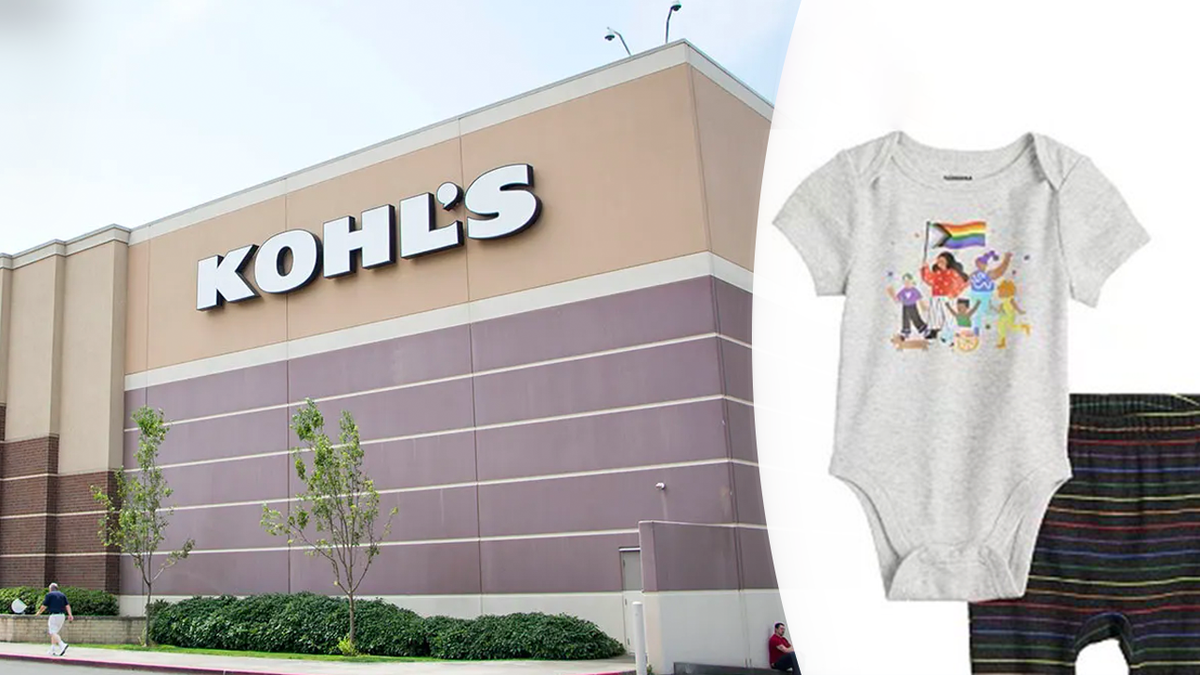Jennifer Sey on Bud Light, woke corporations and being 'politically homeless'
The former Levi’s exec spoke with Fox News Digital at the libertarian FreedomFest conference in Memphis, Tenn.
Business executives and consumer experts largely believe it is increasingly unpopular for American businesses to take a public stance on current events because it has a polarizing and alienating effect.
In recent years, sports teams, clothing brands, beverage companies, food labels and corporate giants have weighed in on some of the country's most polarizing public policy debates. However, most Americans don't want businesses to inject their opinions on the most contentious political and social issues, according to a new poll conducted by Gallup and Bentley University.
Jennifer Sey, a former marketing executive at Levi’s who was ousted from the company for her outspoken stance against school closures during the COVID-19 pandemic, said the poll seems to indicate that as more and more brands get political, consumers from both sides of the political spectrum are left feeling alienated and without choices.
Nearly 60% of Americans think businesses should not take a public stance on current events, which is up from 52% last year, according to the Gallup poll. Political party, race and age were most determinative of how Americans believed businesses should act.
MAJORITY OF AMERICANS DON'T THINK BUSINESSES SHOULD TAKE POLITICAL, SOCIAL STANCES ON CURRENT EVENTS
"People largely want to be able to buy products they love [and] engage with brands they love without having to worry about politics," Sey said.
Issues that Americans are most in favor of businesses taking a stance on include climate change (55%), mental health (52%), free speech (49%) and healthcare (48%) while the least popular areas include abortion (26%), political candidates (19%) and religion (15%).

Consumers' Research has what it calls "Woke Alerts" to tell consumers when a company goes "woke," and has reported companies like Ben and Jerry's, North Face, Kohl's, Target and Bud Light. (Natalie Behring/Getty Images)
Will Hild, the executive director of Consumers' Research (CR), which has an ongoing campaign calling out companies who are serving "woke politicians" instead of their consumers, told Fox News Digital that the poll's direction goes against politics and while 55% of Americans might be in favor of a business speaking out on climate change, that still means 45% either don't or don't care about it.
CR has what it calls "Woke Alerts," a subscription based texting campaign that alerts consumers when a company goes "woke." Past alerts include reports on companies like Ben and Jerry's, North Face, Kohl's, Target and Bud Light.
"I think increasingly Americans are waking up to the cynicism that a lot of corporations who get involved in politics are actually playing at, and even people who on paper the company is taking the same position as them… they realize that the corporations are often only doing this for their own benefit," Hild explained.
He said the most interesting aspect of the poll in his perspective was that in every single category that Gallup polled, people were less likely to favor a business speaking out on a political event than in 2022.
CNN, POLITICO INDICATE THAT ‘GO WOKE, GO BROKE’ APPLIES TO NEWS ORGANIZATIONS
"You don't want a company trying to tick off 45% of Americans, generally speaking," he said. "In addition to that, give it another year, that may not be the case because obviously the trends are going that way."
Business expert Josh Cadillac also made the argument that while some Americans might be okay with a business speaking out about environmental issues, they might not back it up with their checkbook should it impact prices.
"They like it [climate change activism], but when it starts to cost them money, if that same question was asked, 'Hey, how much are you willing to pay extra for things in order to support this cause,' I think that you'd probably see a very different reaction," Cadillac said.
With the rise of corporate activism and events like Pride Month, more American businesses have felt pressure to inject their own opinions on social, political and cultural issues, but only 37% of Americans think businesses should take a public position on LGBTQ+ issues, 45% on racial issues, 39% on gun laws, 34% on immigration policy and 27% on international conflicts.

Target partnered with GLSEN, a K-12 education group that focuses on getting districts to adopt policies that will keep parents in the dark about their child's in-school gender transition, providing sexually explicit books and integrating gender ideology at all levels of curricula in public schools. (Brian Flood/Fox News Digital)
Some of the most prominent instances where businesses stirred up controversy and backlash include Bud Light, which partnered with transgender influencer and activist Dylan Mulvaney to promote March Madness, and Target, which faced backlash over the store's Pride displays that featured items such as assorted LGBTQ children’s apparel and "tuck-friendly" women's swimsuits. This resulted in massive losses worth billions of dollars for both companies.
"What the Bud Light case suggests is that there is a heavy, heavy, heavy price to be paid that could absolutely destroy the long term viability of a product," Hild said. "I'm hopeful that companies will learn from that, try to get rid of people [employees] who have a political agenda rather than a market agenda idea to sell products [and] serve customers."
Bud Light's sales plummeted by 24.5% in four weeks alone this summer and saw a 23.9% decrease in sales on a dollar basis compared to a year before, indicating consumers didn't agree with the brand's decision. Some Target stores moved the controversial merchandise to the back of the store, but its market value fell $15 billion in the weeks following the Pride display.
TEXAS REP WESLEY HUNT CHALLENGES ‘WOKE’ CORPORATIONS WITH ‘AMERICAN PRIDE MONTH’ LEGISLATION
"Given that more companies are taking left-leaning stances, from Nike to Target to Budweiser, it isn’t surprising that independent and right-leaning consumers are feeling more alienated and that left-leaning consumers are more inclined to want companies that take public stances - because companies are aligning with their views," Sey said.
"For broad reach brands this leaves a big swathe of the country feeling unwelcome, which can impact the business of these bigger brands if consumers choose to reject those brands, as we’ve seen with Bud Light and Target," Sey warned.
Sey said the best bet for a business, from a financial perspective, is to focus on providing a great product with "unifying marketing," or what she calls "normie capitalism," which seems to be where the current marketing trend is headed because "it makes solid financial sense given the split in the country."
Political party identification has the strongest influence on whether Americans believe corporations should take a stance on political issues with over 60% of Democrats in favor of businesses doing so, down from 75% in 2022.
"I think the interesting thing more than anything is that the biggest decline in the number of groups was in the Democratic group… this shutting people down is now being used against some of their preferred issues," Cadillac said.
In contrast, just 17% of Republicans and 36% of Independents came to the same conclusion as their Democratic counterparts, which is down from 18% and 40% respectively in 2022.

Kohl's came under fire in May as the latest retailer to sell LGBTQ clothing for infants and young kids. (iStock )
"I think increasingly, even Democrats, even liberals, who see corporations on the whole taking positions they quote unquote agree with, they understand that it's either fake or it's in pursuit of a pecuniary goal that they might not support and so everyone is wising up to the scam," Hild said.
Sey said that even Democrats, who might appreciate the stances that a company like Nike or Target might take, "are then forced to consider other practices — like human rights concerns over manufacturing in China — lest they feel like hypocrites."
"So far they’ve been willing to overlook these types of things in favor of ad campaigns celebrating Pride or Women’s History Month," Sey said. "But at some point they will need to examine that. Or just go back to wanting great product, which seems to be the preference."
Race also played a significant role in how Americans indicated businesses should weigh in on political issues, with Black and Hispanic Americans the most likely to be in favor of a public stance. Younger adults are also more likely than older Americans to be in favor of businesses taking stances on current events, but overall those numbers have declined since 2022.
CLICK HERE TO GET THE FOX NEWS APP
Cadillac said the polling results are reflective of a societal shift where the boycott, which was largely a weapon of the left, has now become weaponized on both sides of the political aisle.
"It used to be safe for businesses to lean toward whatever the progressive idea is, because the other side, maybe they might complain about it, but it really didn't affect their purchasing decisions, the right really wasn't big on the boycott," he explained. "Now it seems to be a tool of both sides. They're using it equally, and I think that what you're actually seeing is the consumers are worn out from the conflict."
For more Culture, Media, Education, Opinion, and channel coverage, visit foxnews.com/media.









































